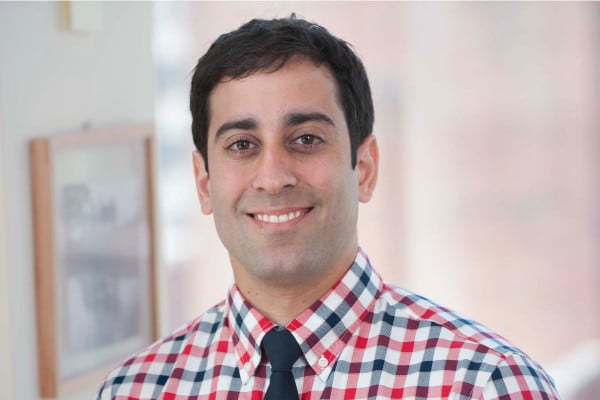#EyeGetDilated: Alex Shoushtari, MD


Guest Blog SUBMITTED BY
Alex Shoushtari
Guest blog from Dr. Alex Shoushtari, medical oncologist with an expertise in uveal melanoma:

Getting a dilated eye exam is like going to the dentist. Mentally, it feels way more burdensome than it actually is (just bring sunglasses!), and it is very easy to ignore it until there is a serious problem. Like many screening tests that are recommended for adults, it will never demand your attention. For most people, a dilated eye examination will show healthy eyes and not much else. Every so often, though, it saves lives.
The back of the eye is a surprisingly informative window into your overall health. Ophthalmologists are eye surgeons who love to announce to other types of doctors that they aren’t just fancy 9-to-5 cataract removal specialists, and we usually resent them for rarely working evenings or weekends. Just between you and me, though, I must admit they’re right; they do much more than we give them credit for. Eye doctors can tell whether you have uncontrolled hypertension or diabetes, control or slow blood vessel growth that might otherwise permanently affect your vision or even diagnose life-threatening diseases.
Ocular melanoma is one of those rare diseases, and it is one that is near and dear to my heart as a medical oncologist specializing in rare melanomas. About six in a million adults get melanoma in the eye, most often arising from melanin-producing cells called melanocytes that normally live in the choroid, the layer behind the visual cells of the eye (the retina). Less often, they arise in the hairless mucosal surface inside the eyelids, called conjunctiva. Although they arise more often in people with light-colored eyes, they nonetheless affect people of all ethnicities, ages and genders.
Although most people can tell if something looks abnormal in the eyelid, you can’t do the same for the choroid layer at the back of the eye. You need an ophthalmologist to give you those annoying eye drops, wait 20 minutes and then look at the back of the eye with a bright light. They will be able to tell you if you are the roughly five percent of Caucasians (less in other ethnic groups) with benign moles, or nevi, in the back of the eye. The vast majority of these are harmless and will not change over time, and they can be safely watched year to year. Just like a mammogram, pap smear or colonoscopy.
Unfortunately, a rare minority of choroidal nevi, one in a few thousand, will grow and become cancerous. Time is of the essence here. Science has proven that the smaller the tumor is when it is diagnosed, the more treatable it is and the less likely it is to spread or metastasize to other organs. This is especially true for the “genetically high risk” tumors that seem to be programmed to spread. Catching them early saves lives. Novel techniques use radiation, not surgery, to treat these tumors, so most people can keep their eye.
I get involved for the less fortunate people who have tumors that have either spread already or are larger or high risk. For metastatic tumors, patients require medical treatments that can extend life, sometimes for years on end, but still often represent a life-limiting illness. Even for high risk tumors that have been treated and haven’t spread yet, patients require active surveillance such as multiple MRI or CT scans of the liver and other organs for several years. It’s stressful, to put it mildly. I like to think of myself as a nice guy, quite charming in some circumstances, but even I know that no one really wants to meet me in a professional setting. It’s no fun.
The best way to ensure we only meet on Twitter is to treat the eye doctor like your dentist, internist or gynecologist. You’re probably overdue for general health maintenance. Get it done! (And don’t forget to bring your mask and sunglasses).
Behind every OM warrior are the family, friends and loved ones who support them. CURE OM is dedicated to offering whatever support is needed to all those who share in the fight against OM. In this season of giving thanks and giving back, please consider a tax-deductible gift to show your support:



